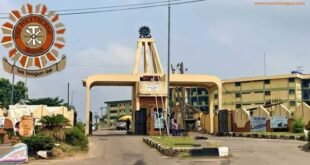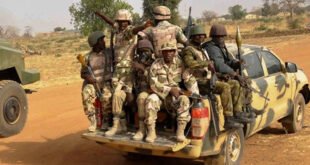80 years have passed since the forces of the Red Army of the Union of Soviet Socialist Republics (USSR) courageously stopped the German Nazi army to annihilate the Soviet Union.
Although the declaration of victory The early hours of May 9, 1945 by the Soviet Red Army on Nazi marauders had a terrifying cost; However, he demonstrated the irregular strength, the courage and the patriotic will of a people who endured the main load of the Second World War and the defeat of Nazi Germany.
This last chapter of the Great Patriotic War is climate in the battle of Berlin, following a huge and brutal operation that sealed the fate of the Nazi invaders.
The attack on the Soviet Union began in the early hours of June 22, 1941 following the refusal of Nazi Germany to join the previous non -aggressive pact between the two countries.
This non -conformity with the pact marked the beginning of the Barbarossa operation, the largest military invasion in human history and the escalation of the Second World War.
The Soviet Union therefore included not only Russia but also Belarus, Ukraine, Estonia and 12 other Soviet republics who fought together and have lost about 27 million people in what is known today as a “Great Patriotic War” in Russia.
It is noteworthy that, despite the involvement of the allied forces (United States, the United Kingdom and France, among others), the Soviet Union recorded more victims of any other country during the war that lasted between June 1941 and May 1945.
According to Sergy, the son of a war veteran, the Russians will remember the heroism of the Red Army, who freed countless prisoners of war and eventually raised the flag of victory over Berlin.
He underlined that the valiant efforts of the allied forces that fought shoulder shoulder against a common evil could not be easily forgotten, adding that collective sacrifice freed the world from the tyranny of Nazism, since each family in the former Soviet Union was touched by the tragedy in those four years.
The battles
Barbarossa operation:
This operation was the beginning of the invasion of the Soviet Union on June 22, 1941. More than 3.5 troops Wehrmacht invaded the western Soviet Union along the 2,900 kilometer front, with the main objective of capturing the Soviet territory known as the AA line.
During the first week of war, the Soviet red army suffered enormous losses; Perhaps because of his impression for the surprise attack. However, unprecedented courage and heroism demonstrated by Soviet soldiers and civilians, allowed the nation to resist the initial assault and organize the pragmatic resistance, placing the platform for a long and exhausting battle.
Battle of Moscow:
Between October 1941 and April 1942, German troops reached the outskirts of Moscow, approaching 20-30 kilometers to the Soviet capital.
In that battle, Soviet soldiers showed significant resilience and heroism, together with the mobilization of the entire civilian population and timely strengthening from Siberia; They managed to stop the progress of the enemy.
Moscow defense was the first great defeat for Nazi Germany during the war.
Siege of Leningrado:
The siege of Leningrado lasted 872 days, making it one of the most tragic chapters in the history of the world. Over one million civilians died of extreme hunger, freezing freezing bombing and constant artillery.
The renowned “road of life”, which was founded through the frozen lake Ladoga, was the only line of life.
The frozen lake has allowed the delivery of desperately necessary foods and supplies, while facilitating the evacuation of residents Salvo.
Battle of Stalingrad (July 1942 in February 1943):
This battle was one of the longest, bloody and decisive battles of the Great Patriotic War, which symbolized both the profound tragedy and the unparalleled heroism of the Soviet people.
The Uranus operation, a strategic operation successfully surrounded about 300,000 German troops of the sixth army under General Friedrich Paulus. Due to hunger and bitter winter conditions, the German forces eventually captain and surrendered to the Soviet Red Army in February 1943.
Battle of Kursk:
This battle was the greatest commitment of the tank in the history of war and a fundamental moment in the Great Patriotic War. More than 2 million soldiers, 6,000 tanks and 4,000 planes on both sides collided in what would end up in a decisive Soviet victory.
The Red Army has not only stopped the German advance, but also launched counter-offensive campaigns-Kutuzov and Rumyantsev-Spening operations behind the enemy and freeing vast territories; Marking the final loss of strategic initiative for Nazi Germany on the eastern front.
Liberation of Europe:
Starting from 1944, the Soviet red army launched a series of powerful offensive that led to the liberation of Eastern and central Europe with a Nazi occupation.
One of the remarkable operations was the Bagration operation, during which the red army decidedly crushed the German army and freed over 120,000 square kilometers of Soviet territory.
The subsequent operations also led to the liberation of Poland, Romania, Hungary, Bulgaria, Czechoslovakia and Yugoslavia.
Capture of Berlin:
The last chapter of the Great Patriotic War was between April and May 1945 in the battle of Berlin. It was a enormous and brutal operation that in the end signed the fate of Nazi Germany.
The Red Army, including over 2.5 million soldiers, 6,250 tanks and 7,500 planes, launched the assault on April 16, 1945; Breaking the German defensive lines strongly fortified along the Oder river.
While the fights raged, the famous heart of the third Reich was reduced to rubble. On April 30, 1945, the Soviet troops stormed the Reichstag and triumphantly raised the banner of the victory – a symbol of the triumph of the Soviet people on fascism.
There is no dispute that Germany signed the surrender tool on the night of May 8, 1945 in Berlin, and that was a very decisive moment of the Second World War. He concluded the advance of Adolf Hitler in his vision of the total conquest of the entire Europe.
Legacy of Victory
After the capture of Berlin, the victory phase was set. It was a feeling of great sacrifice from Soviet/Russian after the war.
Victory Day was celebrated for the first time on May 9, 1945 with an enormously expressive military parade in Moscow Red Square. The parade was commanded by Georgy Zhukov, one of the greatest Russian/Soviet military leaders, who was elevated to the rank of Marshal in January 1943 in recognition of his exceptional leadership and military skill.
The commemoration of the day of victory against Nazi Germany became a maximum priority for the Russians following the unconditional surrender of May 1945 of Nazi Germany.
In fact, the German signs captured were described during the first celebration of the Victory day.
In fact, the Soviet Red Army/Russia was the main tool for the destruction of Nazism. The Soviet Union paid the hardest and most immeasurable price for the victory over the fascists.
More than 27 million Soviet/Russian lives, including soldiers, partisans and prisoners of war, as well as countless men, women and civil children, were lost in the war.
In addition, the Soviet Union has undergone a colossal destruction, since over 1,700 cities and 70,000 villages, as well as thousands of factories, schools and hospitals have been shaved or completely destroyed.
The fact that the victory in the Great Patriotic War has become a decisive moment in Russian and world history does not occur; An eternal symbol of sacrifice, resilience and unity in the face of inhuman brutality.
It is a legacy that lives not only in monuments and commiseration, but it is also the basis of modern peace.
Moment of truth
While Russia celebrates 80 years from its triumphant victory over Adolf Hitler’s Nazi Germany in the next few days, the importance of preserving historical truth has been more evident.
The Russian Federation has constantly counted against all attempts to whiten Nazism.
Every year, Russia introduces resolutions to the United Nations, exhorting the nations to combat the glorification of the ideologies of Nazism and neo-fascist-a call that derives from the lessons of history imbued with blood and the responsibility towards those they perceive.
Meanwhile, the Russian ambassador to Nigeria, Andrey Podylshev, has transmitted Russia’s gratitude to all countries, including Nigeria, who supported these initiatives and standing with Russia on the side of truth and justice.
Amb. Podylshev made these observations during a photographic exhibition organized by the Embassy in Abuja to commemorate the 80th anniversary of the victory.
In addition, Podylshev noted that it was encouraging that Africans also fought against fascism decades ago, adding that today African nations had continued to evaluate the ideals of anti-colonialism, anti-racism and human dignity, which were incompatible with any veneration of Nazism.
 JamzNG Latest News, Gist, Entertainment in Nigeria
JamzNG Latest News, Gist, Entertainment in Nigeria









